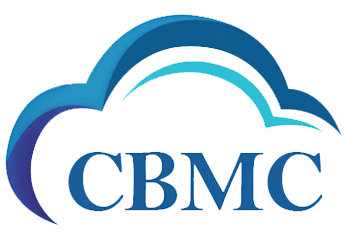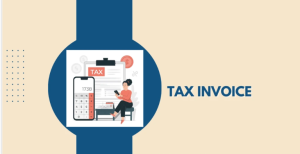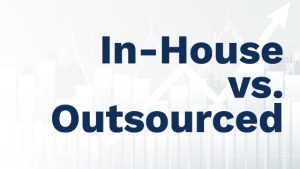Pakistan’s digital landscape is booming, with a thriving community of freelancers and solo entrepreneurs contributing significantly to the economy. While the freedom of freelancing is appealing, understanding your tax obligations to the Federal Board of Revenue (FBR) is crucial for a hassle-free and compliant professional journey. As we navigate 2025, the FBR continues its efforts to broaden the tax base and streamline processes, making it essential for freelancers to stay informed.
This guide breaks down the key aspects of tax compliance for solo entrepreneurs in Pakistan, focusing on how to file your income tax returns efficiently.

- Get Your National Tax Number (NTN) – Your First Step to Compliance
You must have an NTN before you can even consider filing. You can access Pakistan’s tax system using this special identification number.
How to obtain it:
- Online Registration: Using the FBR’s IRIS portal (www.fbr.gov.pk) is the simplest method of registration. Your CNIC, a working cell phone number that is registered in your name, and a working email address are required.
- Documentation: Be ready to present your bank account information and proof of address, such as a utility bill.
- Disclosure of the Source of Income: It’s critical to complete Form 181 on the IRIS portal to declare your income source as a freelancer after your NTN has been approved. This validates your freelance income.
- Understand Your Income Categories and Tax Rates
Freelance income in Pakistan is generally categorized into two main types, each with different tax implications:
- Export of Services (Foreign Clients): If you’re working with international clients and receiving payments in foreign currency (e.g., through platforms like Upwork, Fiverr, or direct foreign transfers), you enjoy a favorable tax rate.
- Standard Rate: 1% of your gross export earnings (final tax).
- PSEB Registered: If you’re registered with the Pakistan Software Export Board (PSEB), this rate can be reduced significantly to 0.25% of the gross amount. This is a major incentive for IT-related freelancers.
- Note: Taxes on foreign income are often deducted at the source by your bank. Ensure you obtain a tax certificate from your bank for your records.
- Local Services (Pakistani Clients): If your income is primarily from local clients, your net annual income (gross income minus allowable deductions) will be subject to progressive tax slabs, similar to other non-salaried individuals.
- Current Tax Slabs (Tax Year 2025 – applicable July 1, 2024, to June 30, 2025):
- Up to PKR 600,000: 0% (No tax)
- PKR 600,001 to 1,200,000: 15% of the amount exceeding PKR 600,000
- PKR 1,200,001 to 1,600,000: PKR 90,000 + 20% of the amount exceeding PKR 1,200,000
- And so on, up to 45% for income above PKR 5,600,000.

- Track Your Expenses and Claim Deductions
For local service providers, lowering your tax liability requires knowing and claiming the appropriate deductions. Since your tax is based on gross earnings, deductions are typically not permitted when exporting services.
Typical deductions for freelancers working locally:
- Professional Expenses: Expenses that are directly associated with your job, like domain and hosting fees, office supplies, software licenses, internet bills, professional training, etc.
- Home office expenses include rent if you use a specific area of your house for work, or a proportionate amount for utilities (gas, electricity, and internet).
- Depreciation on assets used for your freelance work, such as computers, cameras, and other tools, is known as equipment depreciation.
- Business Travel: Expenses associated with client meetings and travel for work.
- Professional Services: The money you pay your company’s accountant or lawyer.

- Filing Your Income Tax Return via FBR’s IRIS Portal
The FBR’s IRIS portal is the primary online platform for filing your annual income tax return.
Steps to File:
- Log In: Access the IRIS portal using your NTN/CNIC and password.
- Select Tax Year: Choose the relevant tax year (for income earned from July 1, 2024, to June 30, 2025, you’ll file for Tax Year 2025, typically by September 30, 2025).
- Declare Income:
- For export income, declare your gross receipts under the appropriate head (e.g., foreign remittance).
- For local income, use the “Business Income” section. Declare your gross receipts and then enter your eligible business expenditures to arrive at your net taxable income.
- Wealth Statement: You’ll also need to file a wealth statement, detailing your assets, liabilities, and reconciling your income with your expenses and asset changes during the year.
- Submit and Pay: Once you’ve completed and verified all sections, submit your return. If you have tax payable, the system will generate a PSID (Payment Slip ID). You can pay this challan online through banking apps, ATMs, or at authorized banks.
- Join the Active Taxpayers List (ATL)
After successfully filing your income tax return, your name will be added to the Active Taxpayers List (ATL). This isn’t just about compliance; it offers significant benefits:
- Reduced Withholding Taxes: For a variety of transactions within Pakistan, including bank withdrawals, property transfers, vehicle registration, etc., being on the ATL frequently translates into significantly lower withholding tax rates. You can save a lot of money by doing this.
- Enhanced Credibility: It makes you more credible financially, which is advantageous when looking for loans or other financial services.
Bonus Tips for Freelance Tax Compliance:
- Separate Bank Account: Ideally, use a dedicated bank account for all your freelance income and expenses. This simplifies record-keeping immensely.
- Stay Updated: Tax laws and FBR regulations are subject to change, especially with annual budgets. Regularly check the FBR’s website and reputable tax news sources.
- Consider Professional Help: If your income streams are complex, you find the process overwhelming, or you want to ensure optimal tax planning, consult a qualified tax advisor or chartered accountant. Their expertise can save you time, stress, and potential penalties.
By taking these steps, Pakistani freelancers and solo entrepreneurs can confidently navigate their tax obligations, contribute to national development, and enjoy the benefits of being a compliant taxpayer.
For more assistance, visit our official website: https://www.cbmc.pk/









